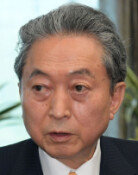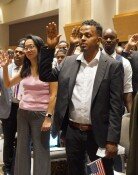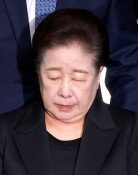[Editorial] To Sunshine North-U.S. Dialogue
[Editorial] To Sunshine North-U.S. Dialogue
Posted June. 07, 2001 09:42,
The statement of U.S. President George W. Bush for the resumption of the North-U.S. dialogue is to be welcomed. Bush`s statement portrays very positive posture of the U.S. in that the Bush administration revealed its intention to discuss with the North on a broad agenda, including the measures to improve the compliance of the Agreed Framework between the U.S. and North Korea, the North Korean nuclear and missile plan, and the conventional military weapons.
U.S. President Bush also stated that "if North Korea responds affirmatively and takes appropriate action, we will expand our efforts to help the North Korean people, ease sanctions, and take other political steps." Even though there is a condition, it is noteworthy of the U.S.`s altered approach to the dialogue that the U.S. revealed its alternative options in responding to the North`s action.
However, the North-U.S. dialogue does not warrant any optimism. Bush clarified that there would be no progress in the dialogue without a thorough inspection and verification. And it also seems clear that the Bush administration will not simply follow the method and the results of the previous North Korean negotiations accomplished by the former Clinton administration.
Furthermore, Bush includes the conventional military weapons in his `broad agenda` for the U.S.-North dialogue. When the U.S. raises the issue of the conventional military weapon, North Korea is certainly to raise the problem of the U.S. military in South Korea.
The Korean government has maintained a different position, that is, including the weapons of the mass destruction in the U.S.- North agenda but discussing the North Korean conventional military weapons as an agenda of the inter-Korean negotiation for the armament reduction. Since the U.S. considers the North Korean conventional weapons deployed along the DMZ as dangerous as the mass destruction weapons, a long time negotiations and coordination may be required before both Koreas and the U.S. reach an agreement on this matter.
To promote the U.S.-North talks, the perspectives of the both counterparts are crucial. The U.S. needs to consider more seriously the reality of the Korean situation. No matter how often the U.S. reiterates the support of the Korean engagement policy, if the U.S. rushes for its world strategic benefits, such as the Missile Defense system, neither the North-U.S. relationship nor the South-U.S. relationship will go smoothly.
However, for the North-U.S. dialogue, the ball is now on the hand of the North. North Korea needs to consider positively the thorough inspection and verification, which the U.S. had required, to dispel the suspicions of the international society. Inter-Korean dialogues have to be resumed immediately. Then a new way will be open there to overcome all other difficulties.







